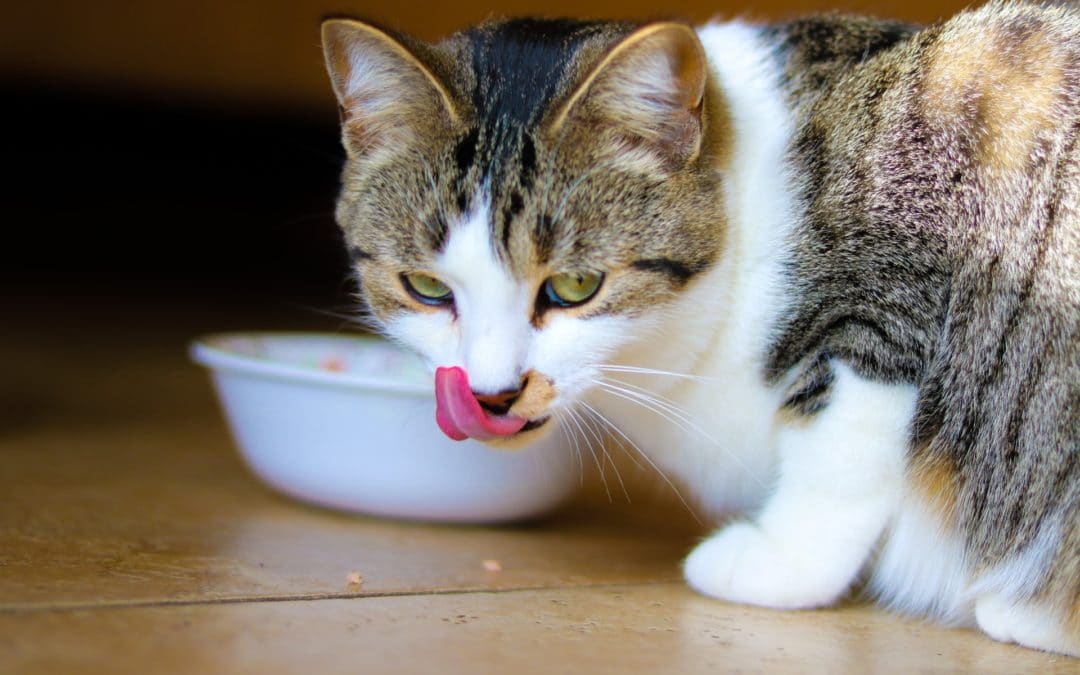Cats often get a reputation for being picky eaters. While fussy eating habits may not seem like much of a problem, you should always be concerned if your cat refuses their food. Taking time to make sure your cat is content with their food and eating enough is vital to their health and longevity.
At East Valley Animal Hospital, we understand how challenging feeding a picky cat can be! We also know that picky eating could be a symptom of a bigger problem. Your cat’s health and happiness are important to us, so here are a few reasons why your cat may be a picky eater, and some advice on what you can do to help.
Why Is Your Cat a Picky Eater?
Some cats prefer specific flavors or textures, and will only eat certain types of food. However, if your cat is a picky eater overall, there could be something else that is diminishing their appetite. Here are several common reasons for low appetite in cats:
1. Anxiety
Stress and fear can have huge effects on your cat’s desire to eat. Recent trauma (like an injury), changes in environment (like moving or bringing in a new pet), and boredom or discomfort could all cause anxiety in your cat.
2. Aging
When cats get older, their appetites often decrease. While this isn’t abnormal, it is still something you should consult with your vet about. Low appetite could indicate other age related health issues.
3. Pain or Illness
Is my cat picky or sick? If your cat suddenly becomes a picky eater, this could indicate a loss of appetite due to pain or illness. Cats don’t usually show pain, but knowing your cat’s typical habits and demeanor will help you notice when something is wrong.
Why You Should Be Concerned About a Picky Cat
Cats who don’t eat for several days have an extremely high risk for a health condition called hepatic lipidosis. Waiting for your cat to get “hungry enough” to eat the food you’ve provided could result in this fatal condition. Rather than waiting it out, try a few different ways of encouraging them to eat. If they still refuse food, seek veterinary help to determine the cause of appetite loss and prevent hepatic lipidosis.
How to Feed a Picky Cat
There are a few ways that you can encourage your cat to eat, and not all of them involve switching their food. Some cats don’t need to have their food changed at all, but need changes in their feeding routine instead.
1. Create a Stress-Free Space
In the wild, cats would have to find safe hideouts to eat. When their attention is on their food, they feel vulnerable to attack from larger animals. If you usually feed your cat in a high-traffic area in your home, try moving their food and water to a more quiet and secluded area. A busy eating space could cause anxiety and make them feel uncomfortable when eating.
2. Schedule Your Cat’s Feedings
While many people free-feed their cats by leaving food out all the time, this could actually contribute to pickiness. When wet food gets left out all day, it can go rancid and make your cat sick or just be off-putting.
Cats tend to do better when fed several times throughout the day. Give your cat a 15-30 minute window of time to eat before putting their food away. Always refresh the food at each feeding and store leftovers properly to preserve freshness for the next meal.
3. Add Variety to Your Cat’s Diet
Some cats are genuinely partial to certain flavors or textures of food. Some cats may prefer seafood flavored dry food, while others prefer chicken flavored wet food. Figuring out what your cat likes best may take a little trial and error. Try feeding them a variety of options day to day until you find a favorite.
When switching foods, first offer the old and new foods side by side. Sometimes a cat may reject a new food, but when it is offered as an option to their old food, they may suddenly take interest. Another good practice is to get samples and small portions of foods for your cat to try. This will save you money if you have to try a couple different options before finding the right one.
Some cats do prefer a rotation diet, so having a couple favorites on hand to rotate out through meal times could encourage your cat to continue eating regularly.
Keeping Your Cat Healthy
All cats need a consistent and well-balanced diet for optimum health. If your cat is a picky eater, or if you have concerns about your cat’s eating habits, the staff at East Valley Animal Hospital is here for you. To schedule an appointment, call 480-568-2462 or contact us online. We look forward to seeing you and your furry friend!
Photo by Abeer Zaki on Unsplash

